Friday 20th July to Friday 3rd August
Suva
It was a glorious six hour sail north from Kadavu to Suva. With only 7-8 knots of wind we were finally able to try out the new top-down furling system for our cruising chute that we’d had installed in New Zealand. The sail unfurled and filled beautifully and we were soon sailing at 5-6 knots in the light winds, of which up to 2 knots of current were helping us along. Even better when we later furled the sail it folded up easily around the furling line… no more struggling to get the huge sail down with the sock.
We heard from my brother back home in Bristol that his wife had just given birth to a baby boy, a brother for Lily… many congratulations to Mahsa and Rob! It will be a few months before I can give my new nephew a cuddle.
Suva is the capital of Fiji and is a large industrial port. The harbour was full of ships, including rusty fishing boats and wrecks.
This ship had gone aground on the reef at the entrance to Suva harbour… maybe it had dragged its anchor as the holding is very poor here:
We met up with Ian and Steph on Nautilus who had only recently arrived from New Zealand and the next morning, one of heavy rain, Steph and I caught a taxi to the fruit and vegetable market whilst Hugh and Ian headed off to the chandlers. In the huge market the vegetables were sorted into neat piles and priced, which made life easier…. no haggling.
I bought eggs, aubergines, beans, cabbage, pumpkin, spring onions, hot little chillis, pineapples, bananas, cucumber and tomatoes as well as some expensive apples and green peppers imported from New Zealand. Upstairs there were more stalls, one sold a variety of pulses…
Steph needed to stock up with bundles of kava as they were only just starting their trip around Fiji. From the piles of kava root they will make up suitably sized bundles for presenting to the chief when doing sevusevu in a village.
Increasingly laden down we were relieved when we found a porter with a wheelbarrow to carry our bags and to find us a taxi back.
In the afternoon we caught another taxi through one of the more affluent suburbs of Suva to the CostULess supermarket. The taxi driver complained vehemently about property prices in Suva where a 4 bedroom house can cost F$2million (over £700,000). More like Bristol than London prices perhaps, but clearly its a world-wide problem for young people wanting to buy a house. In CostULess we filled a trolley but decided not to restock on gin at £80 a bottle. At the checkout our trolley came to over £500 (with only three bottles of wine and two of beer in it) – we felt homesick for Waitrose prices.
Our plan had been to spend a day in Suva restocking, refilling our empty water tanks and catching up with Ian and Steph, then head out to nearby Beqa island, but every morning we got up just a bit too late and then friends on Loupan and Jadean arrived and another day passed.
Beqa
After four days we finally headed off to Beqa (pronounced Benga) with Nautilus and anchored in Vaga Bay, where we did Sevusevu with the chief.
After being shown round the village we headed up a path into the hills with a view down onto the bay, Vega and Nautilus at anchor below.
We were invited for tea with one of the locals Mack and his wife. Mack later took us out in his boat to scuba dive where a fishing boat had sunk on a shallow reef in the lagoon. We had to swim along the bottom in a strong current to find the boat, which Ian and Steph managed whilst we got diverted to the reef smothered in gorgeous corals, with a lobster hiding in the rocks and a large barracuda hovering in a sinister fashion above us.
Robinson Crusoe Resort
From Beqa we said our final goodbyes to Nautilus and continued west towards Vuda Point as our time in Fiji was coming to an end and we needed to check out of the country there. It was a day sail along the coast to a small resort where we heard they put on shows of fire walking, unique to this part of Fiji. We dropped anchor in the sheltered bay by the small island and spent a relaxing few days in the low-key Resort waiting for the next show and enjoying iced coffee and cocktails in the bar.
On the Saturday afternoon the resort started to fill up as boatloads of tourists arrived from nearby resorts and by the evening there were 160 people keen to drink kava, see the show and eat from a lovo (a traditional meal of chicken, fish and vegetables cooked in an underground oven).
The hip rotating by the women reminded us of the dancing we’d seen in Tahiti – the display was announced as a ‘South Pacific performance’ – more Polynesian than traditional Fijian.
Fire walking in Fiji dates back over 500 years to the Sawau tribe on the island of Beqa, when the spirit god granted young Tunaiviqalita the power of controlling fire. Today young men of the tribe are still able to walk on red hot stones, having abstained from sex and eating coconuts for ten days beforehand to prepare themselves. The performance we saw was a little underwhelming – a brief few steps onto the hot rocks revealed after the lovo oven was emptied of chicken and yam – more banter than actual fire walking….
…. but the fire dancing at the end was entertaining…
Musket Cove Marina
We had been looking forward to our visit to Musket Cove since Swiss friends Peter and Franziska on Pandora had raved about it. There was space in the tiny marina and we reversed in, dropping the anchor to secure the bow and moored stern to on the jetty… very Mediterranean.
We were ideally situated, right by the beach bar and perfect for sundowners – a cold beer or frozen mojito. The main problem with the frozen mojito was that the tower of frozen green mush was served in a shallow cocktail glass and as it melted it overflowed the glass, so you needed to drink it (through a paper straw I was pleased to see) quickly to avoid the sticky cocktail dribbling everywhere and so losing any of the precious alcohol.
Musket Cove also had a big swimming pool, a smart restaurant, beach and water sports and lots of excursions to visit villages etc. We passed on the excursions and got out the paddle board which I had bought in New Zealand and was so far unused. I wobbled my way around the bay for a while and the board seemed particularly hard to steer until we discovered we had omitted to put the fin in. After that it got a lot easier.
Vuda Marina
Arriving in the marina at Vuda Point felt like another reunion. Mezzaluna were still here… they had come across from New Zealand at the same time as us but had developed engine problems on the passage so had diverted to the marina here. Almost eight weeks on their engine problems were still not sorted (although now, as I write, they have at last managed to get the parts they needed and are finally cruising Fiji). Hakuna Matata were here too as well as several other boats we had met along the way. Ulla and Pelle from Loupan caught a bus over to meet up.
There was a rather strange arrangent for mooring and getting on to the boat which involved pulling the bow of the boat towards you and leaping on from an overhanging platform.
We had a few days of jobs to do before we’d be ready to leave Fiji. We caught a taxi into Lautoka to collect a parcel of spares that had been sent from the marina in Opua in New Zealand, but got held up by Customs. Another lot of spare parts had been sent on from the UK by my brother Rob and were waiting for us at the marina. Hugh fitted hydrofoils to our new outboard in an attempt to get it to plane better through the water and a replacement navigation light at the bow, broken when trying to berth on the fuel dock in Opua in strong winds and tides. He serviced the windlass and fitted a bow roller for the snubbing line. Another trip to the supermarket to stock up on last minute items, some meals for the passage and a case of lager (for when we arrived).
There were lots of sundowners and socialising too before we were finally ready to head off, clearing out of Fiji with Customs and Immigration before we could leave. It was a four day sail west to the islands of Vanuatu…….

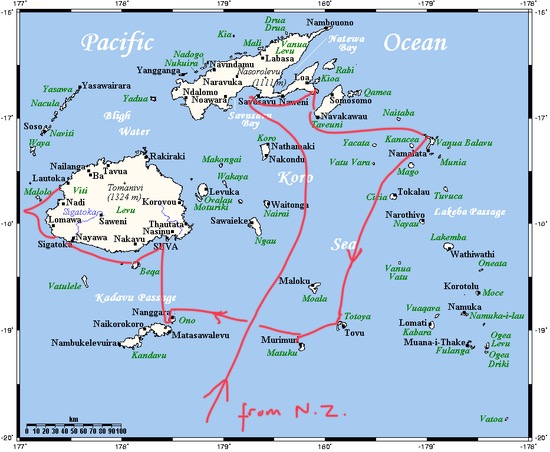
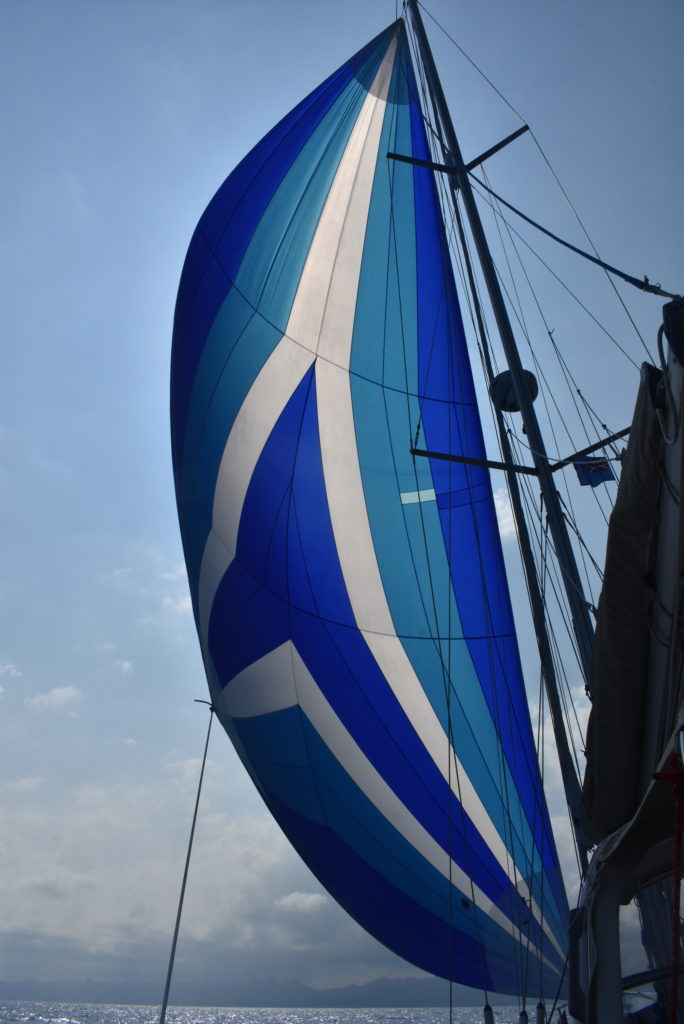
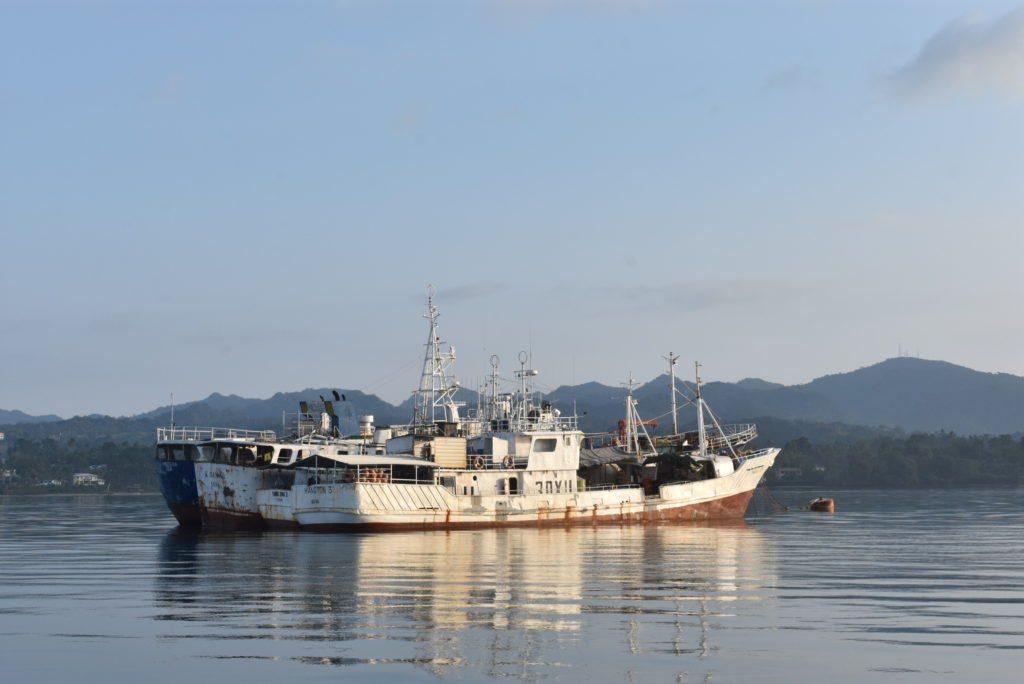
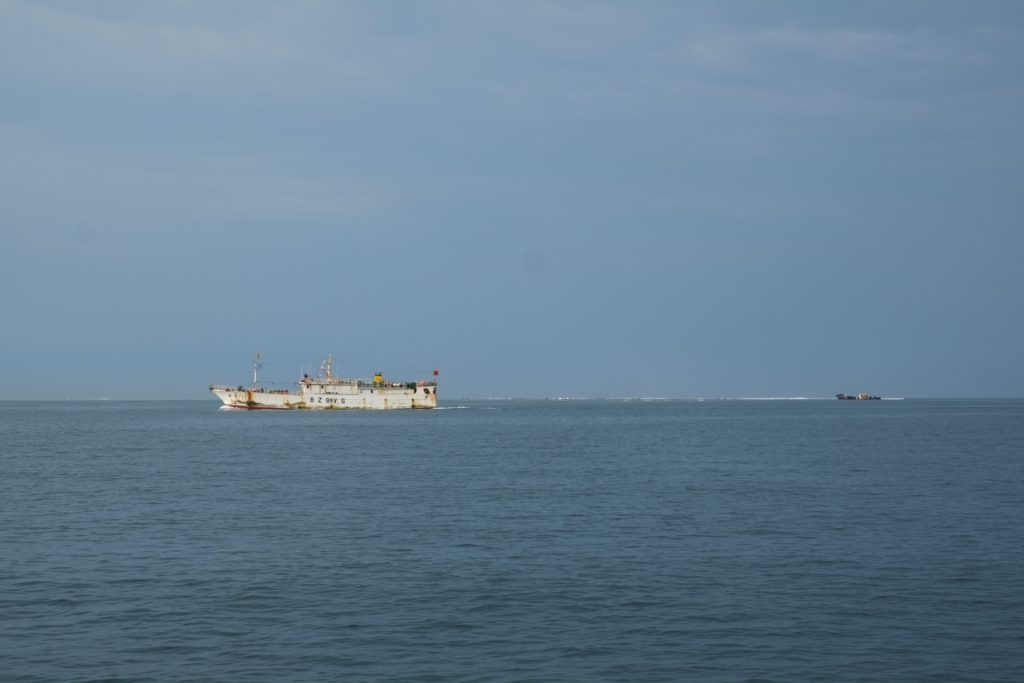
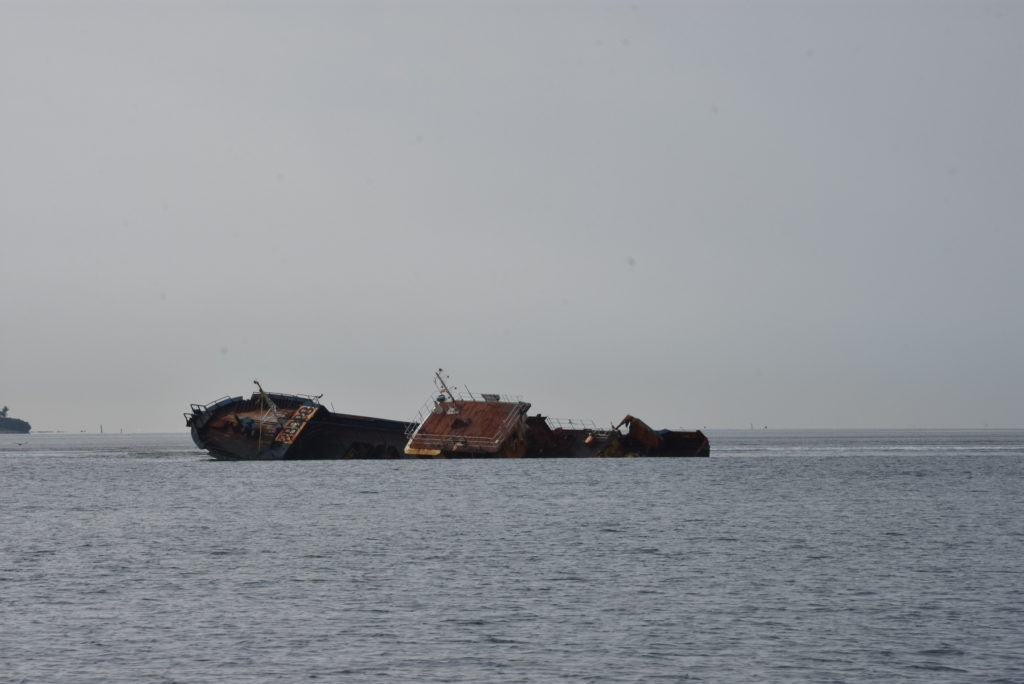
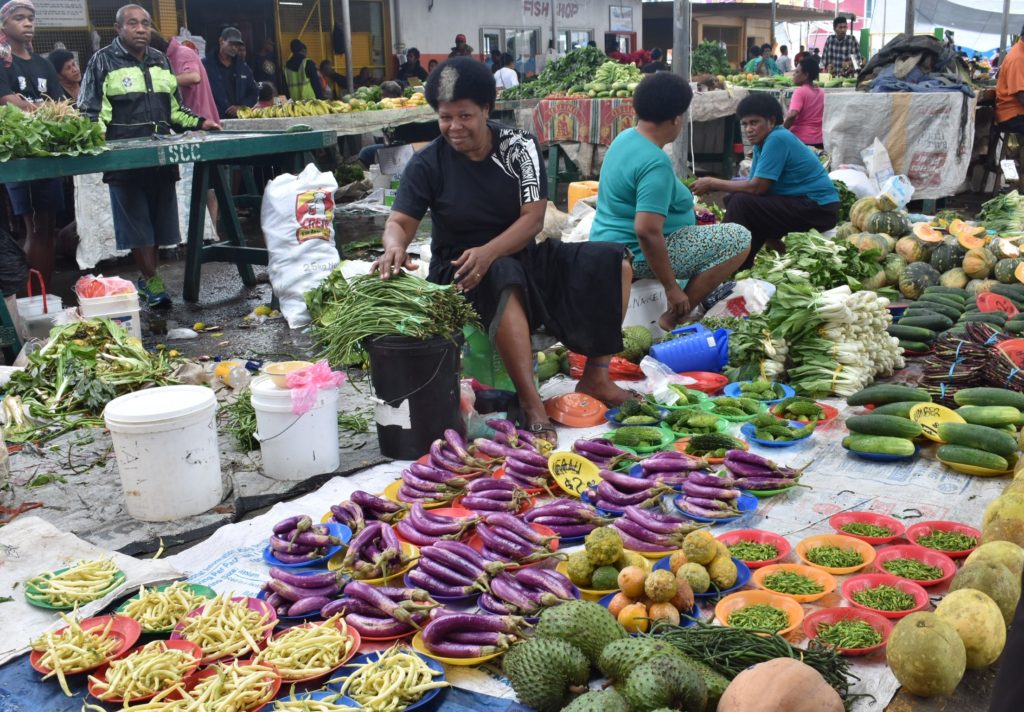
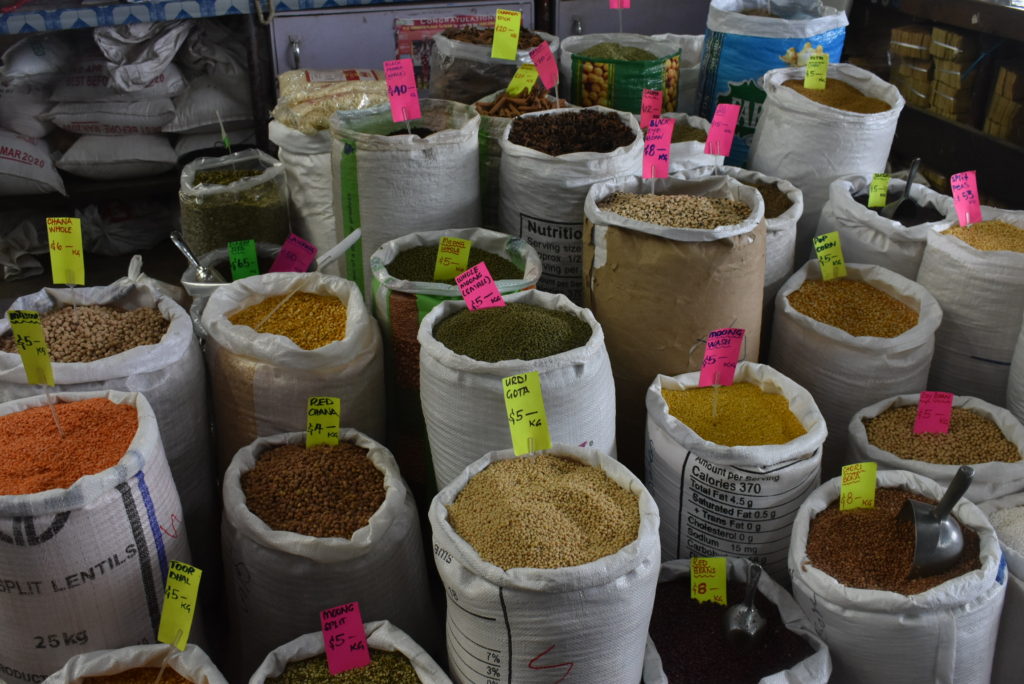
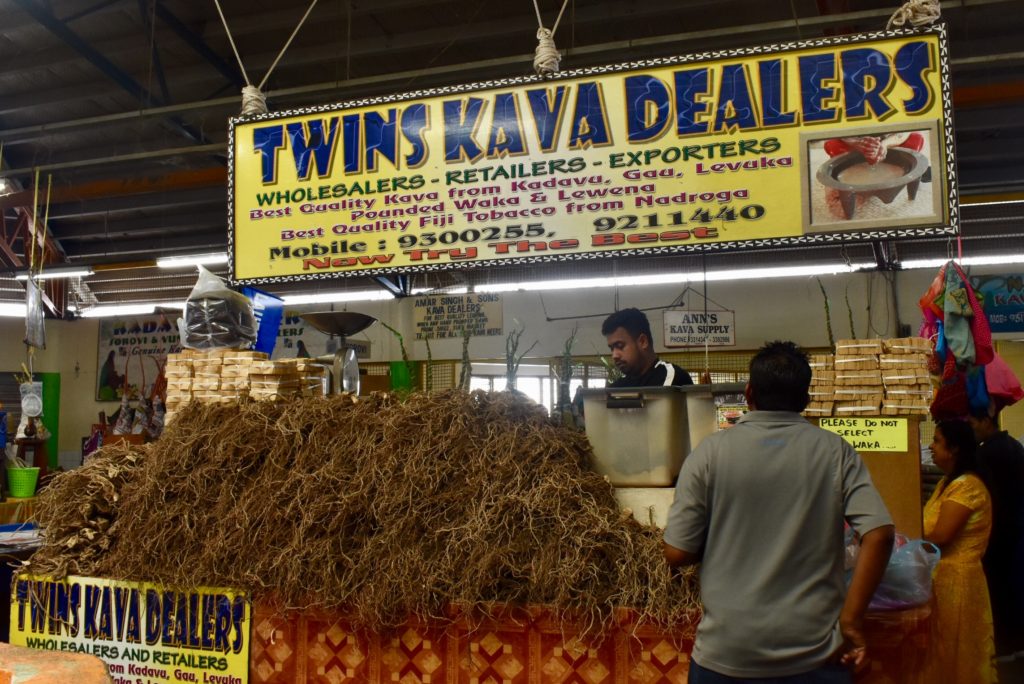
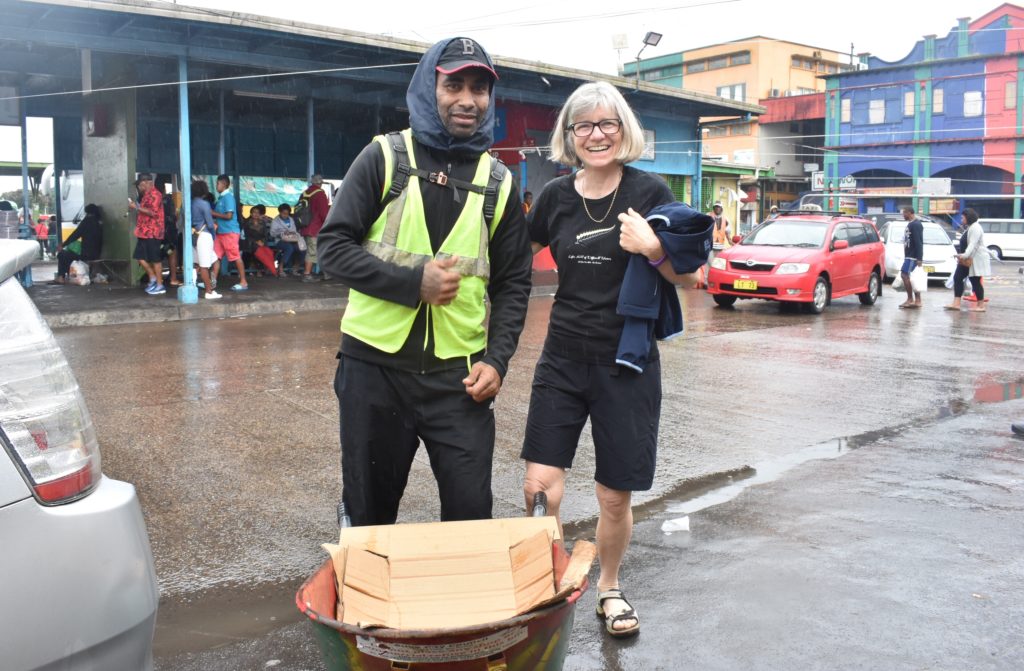
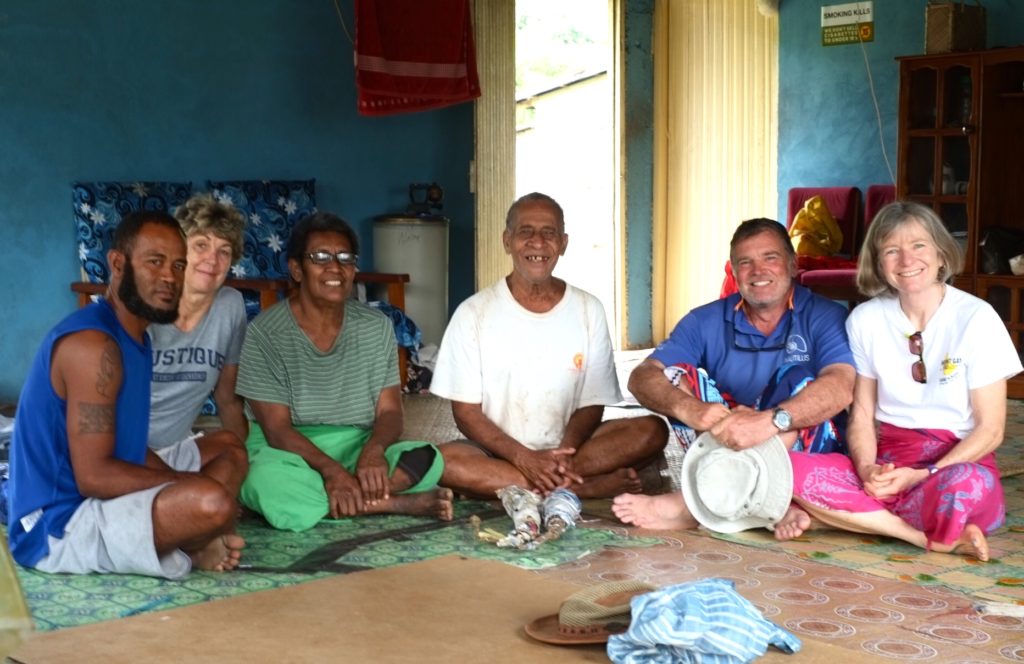
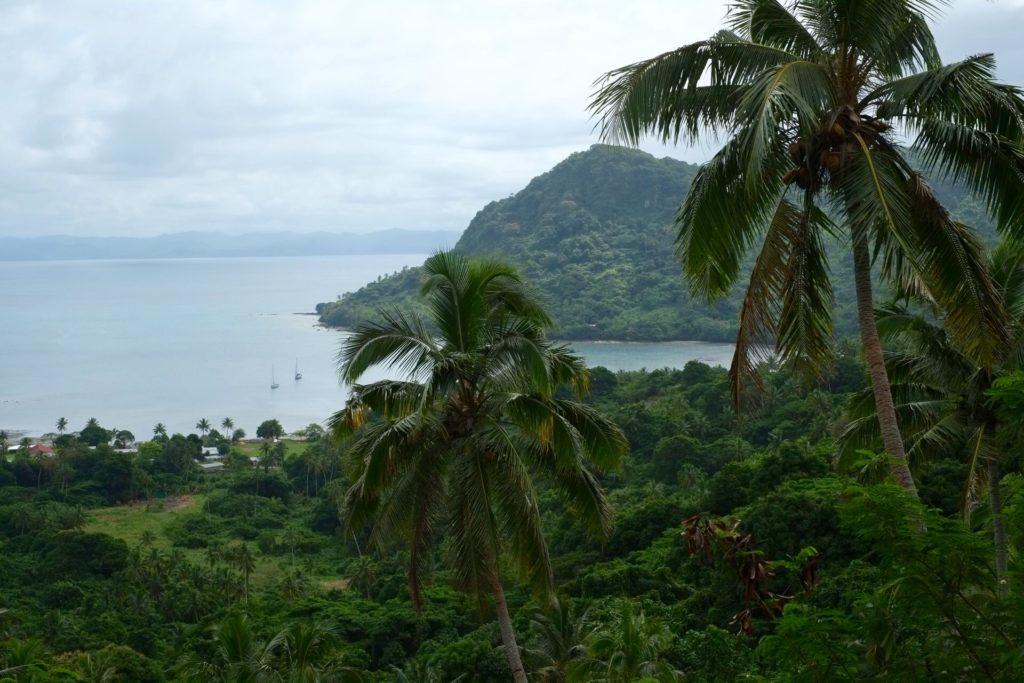
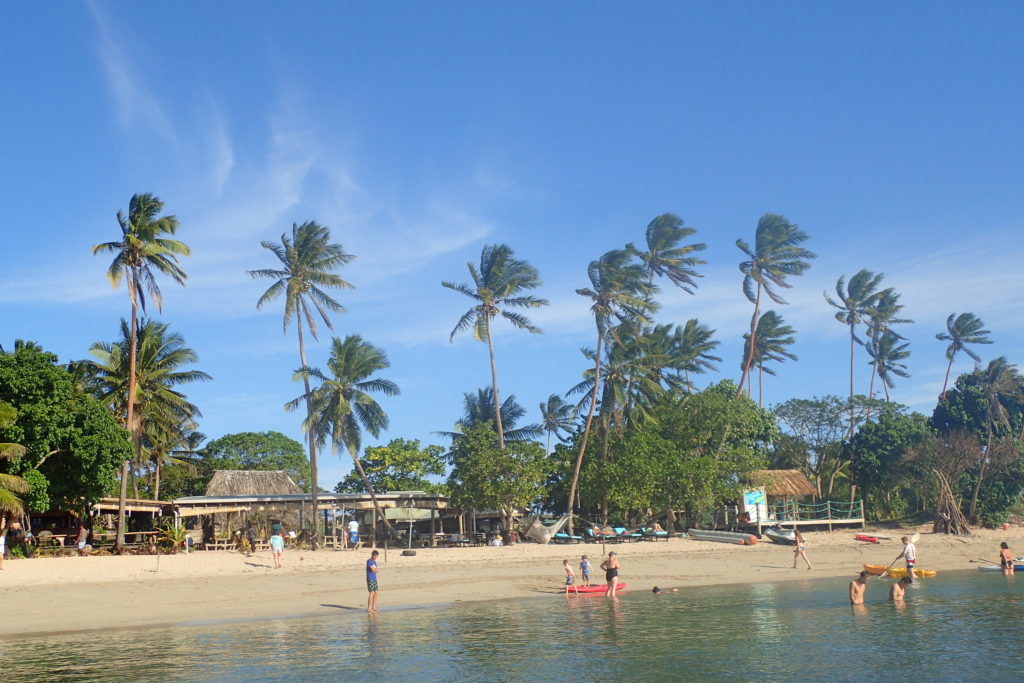
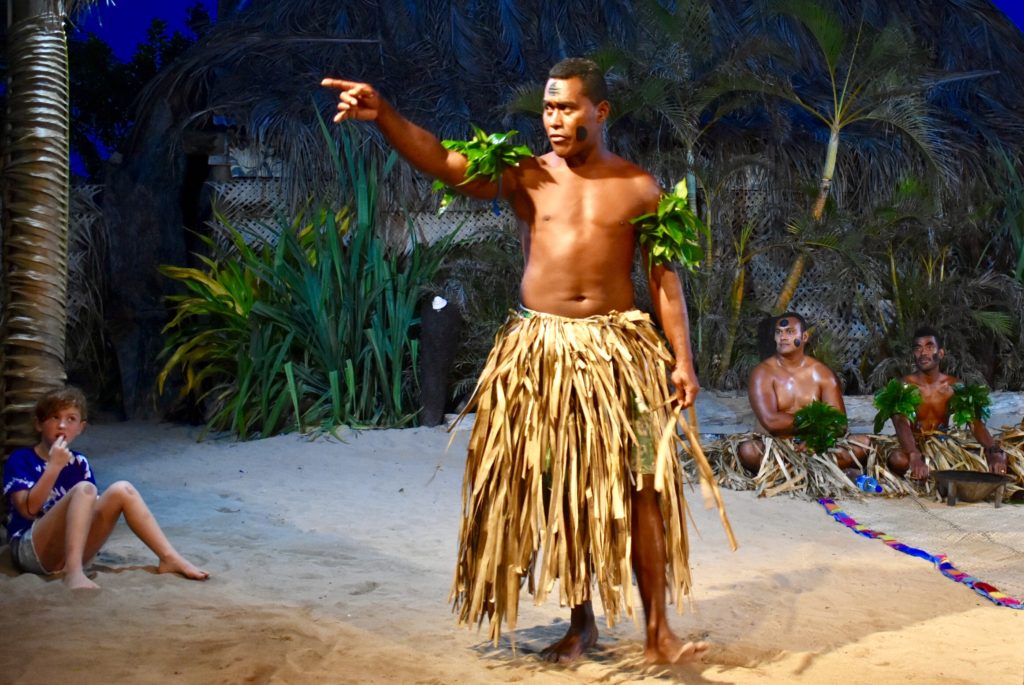
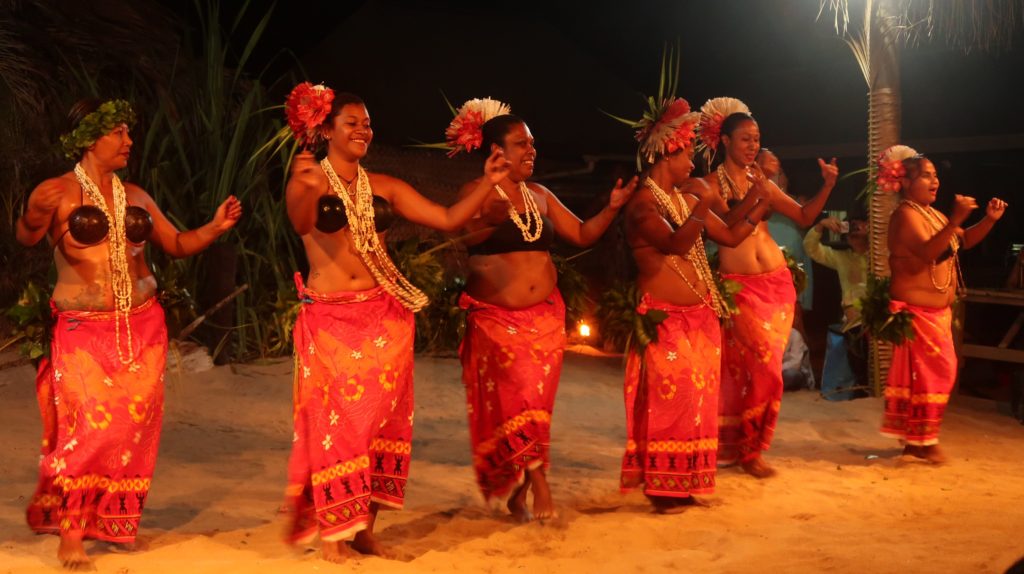
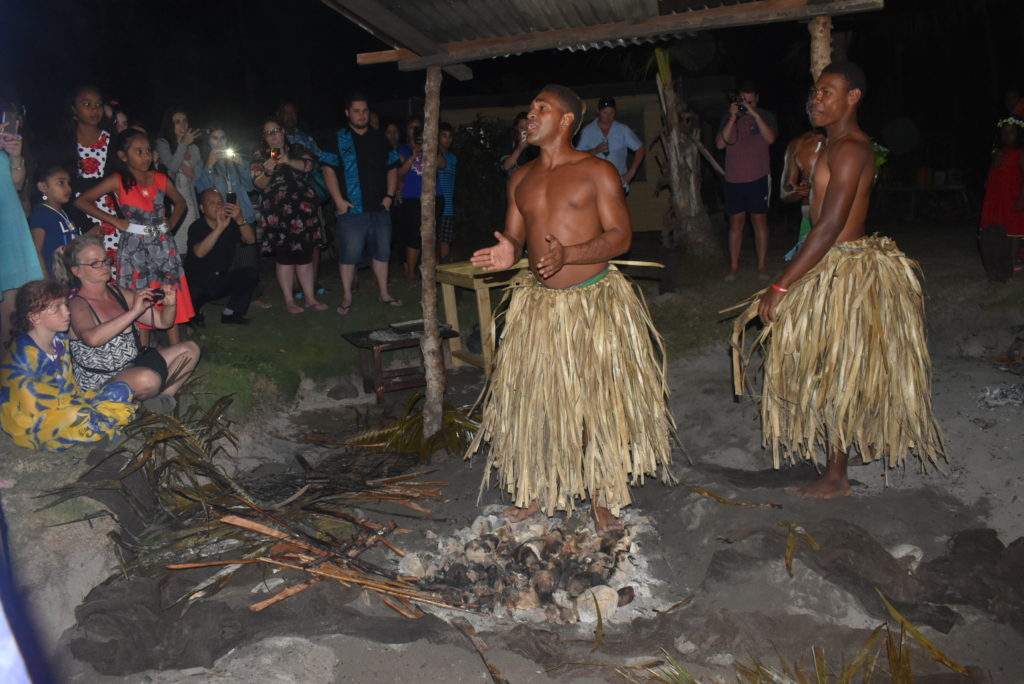
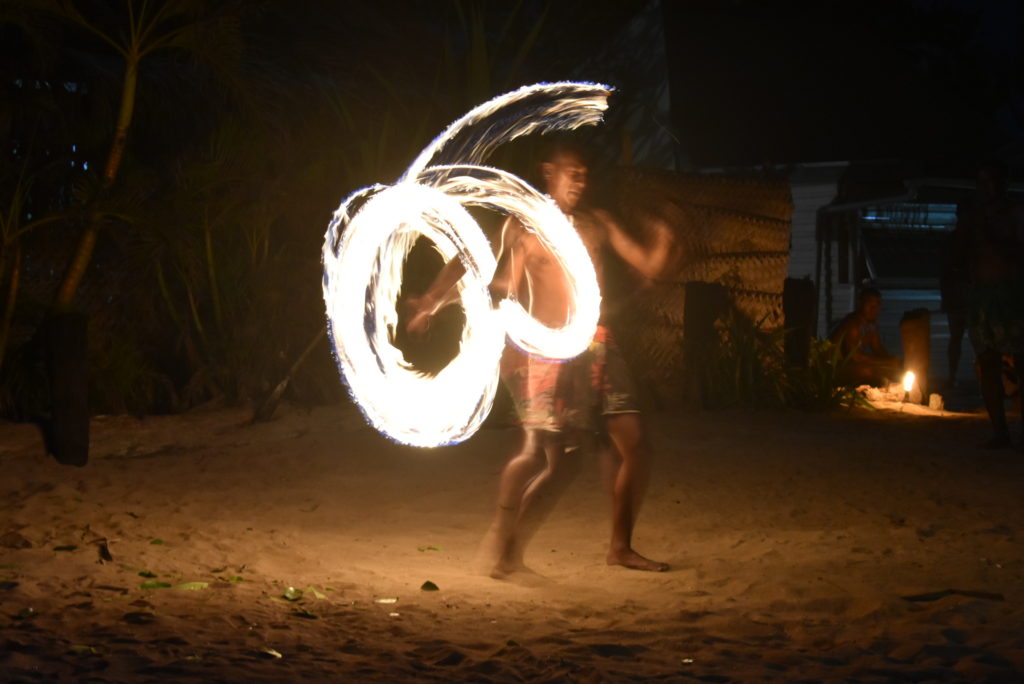
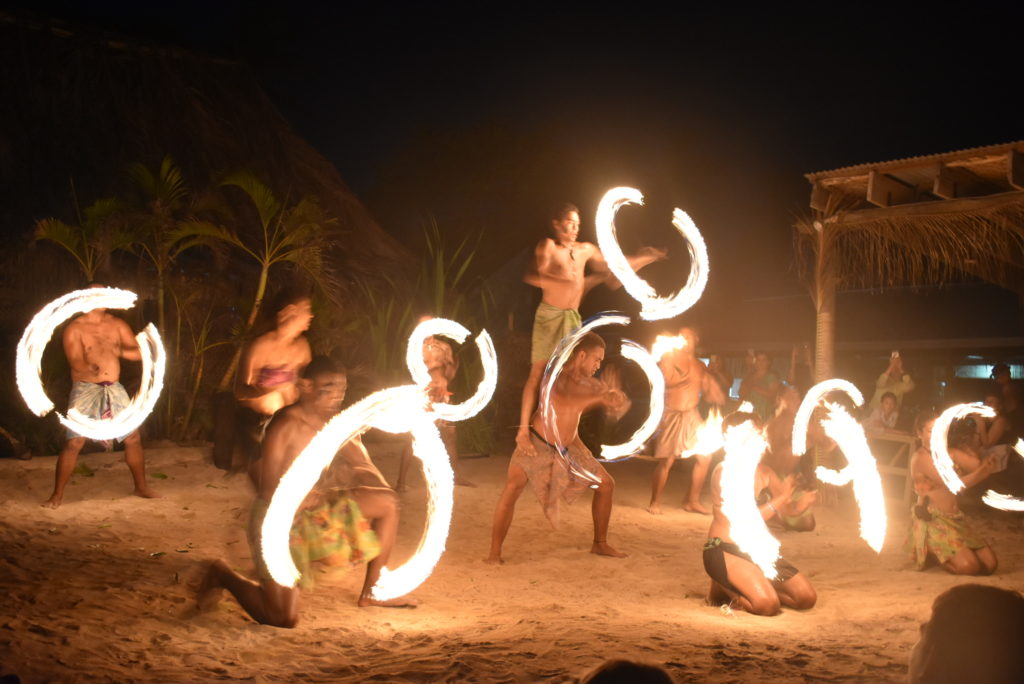
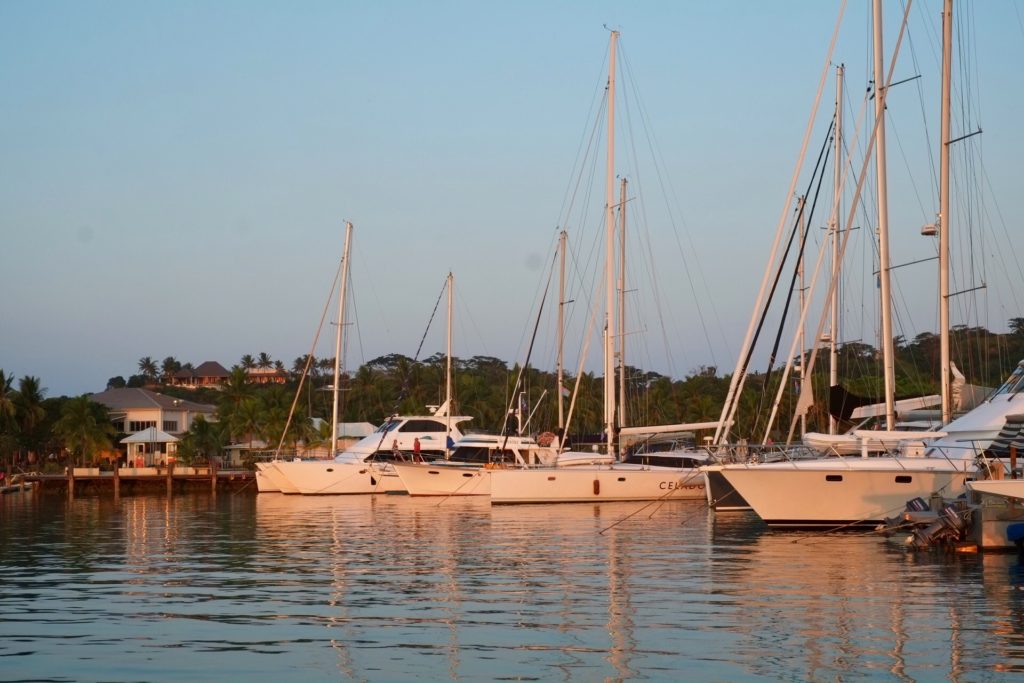
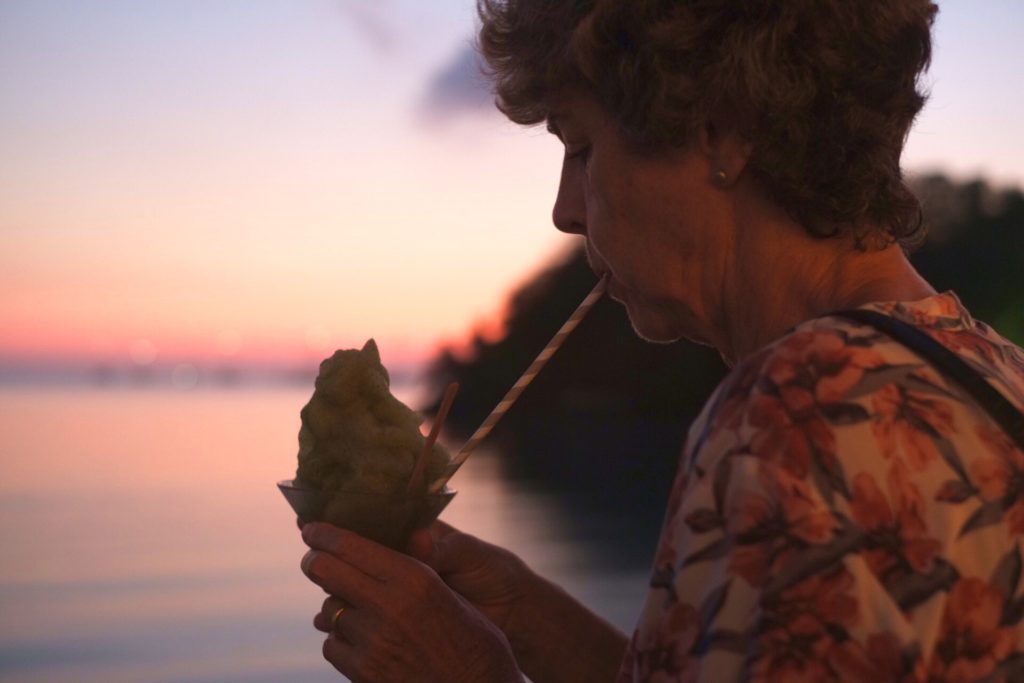
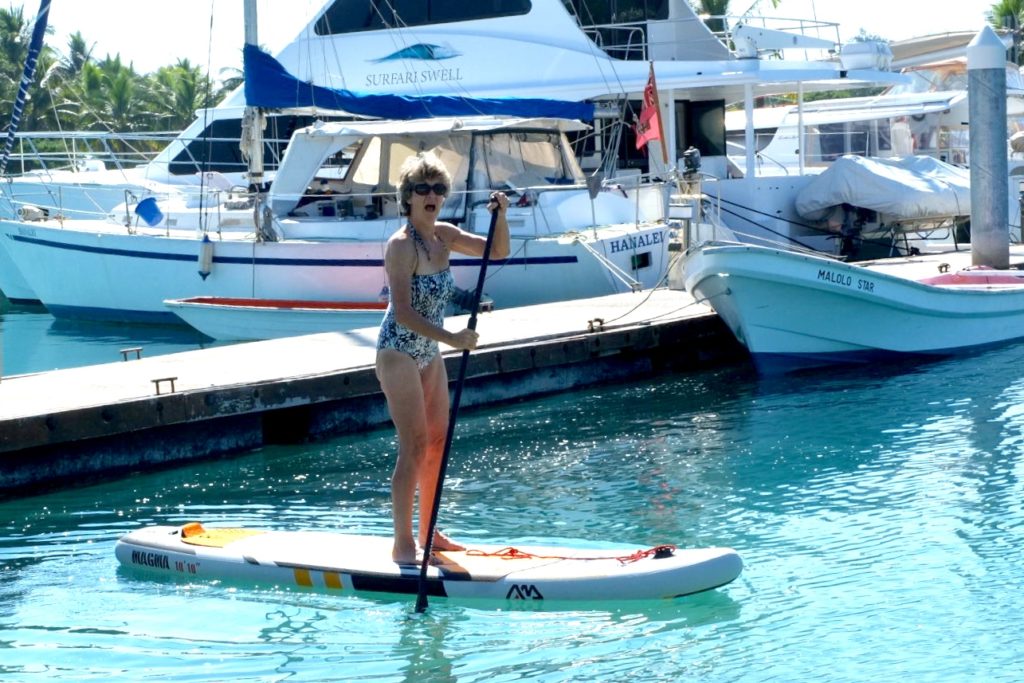
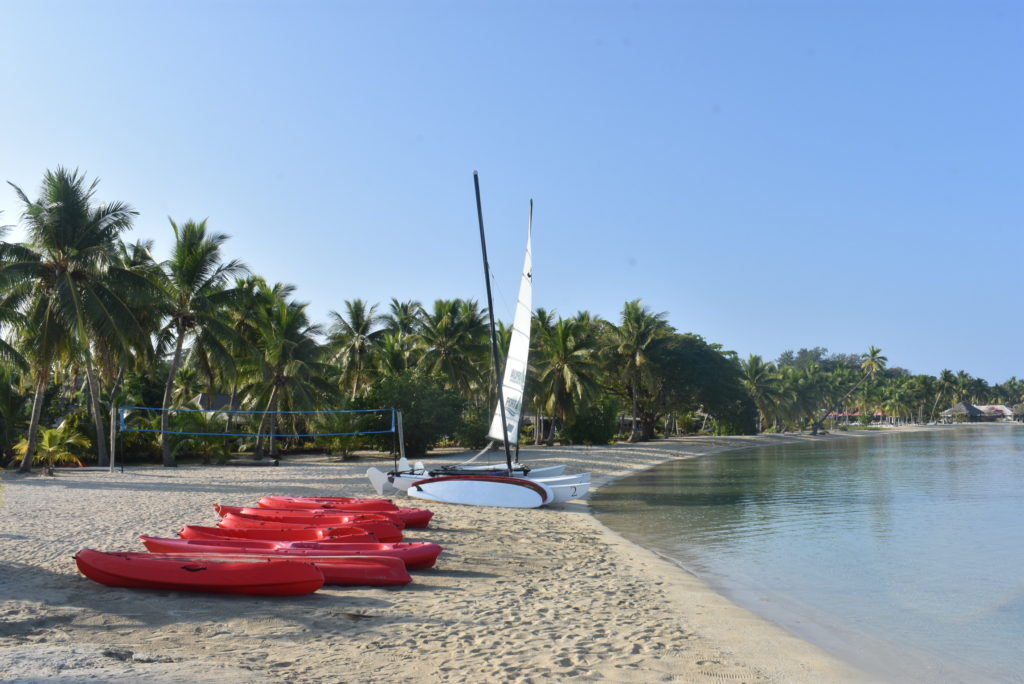
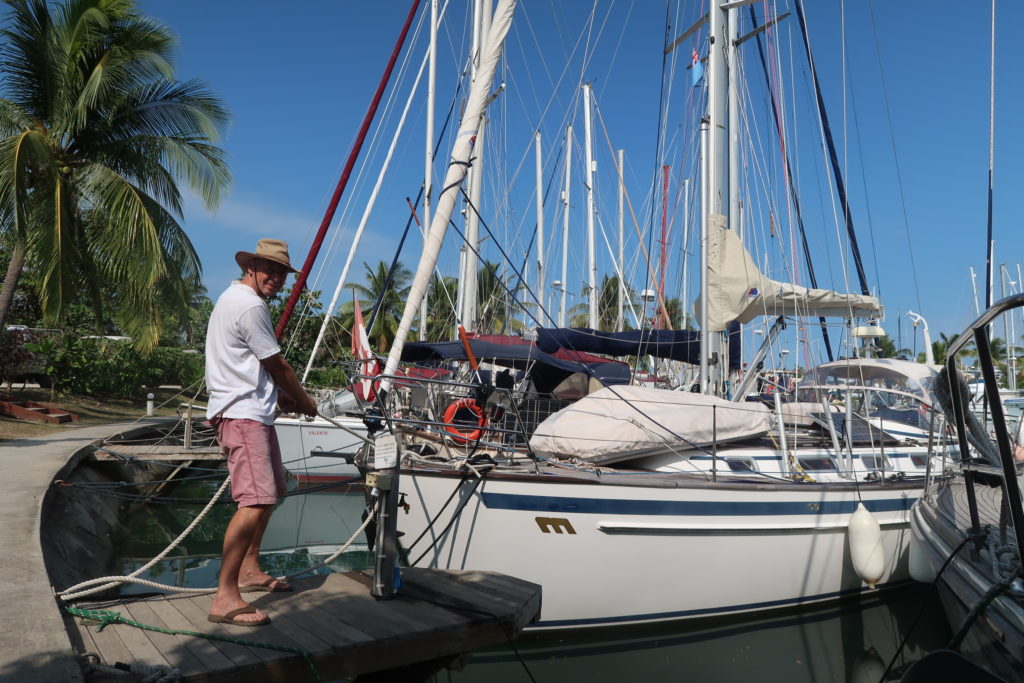
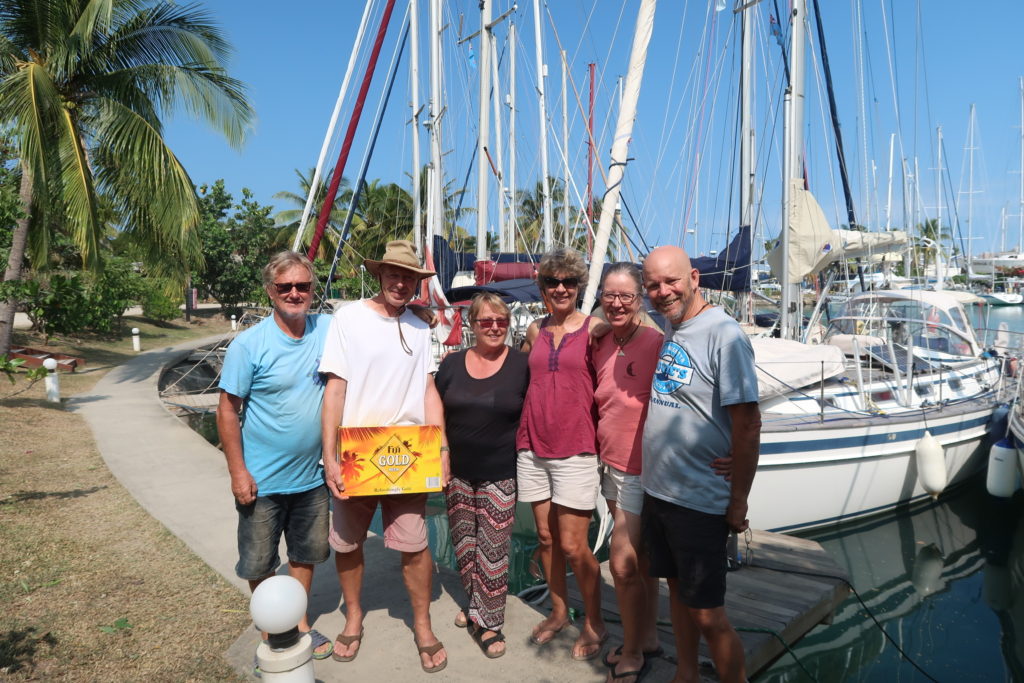
2 Comments
Annie
August 22, 2018 - 9:01 amDoes no one tow the wrecks away or do they just leave then to sink and become fish homes?
If food is so pricey, are wages equally high? Stop showing off “Waitrose” indeed lol. I shall defo be e-mailing the super markets about their plastic. You can’t even buy a potato in Tesco without it being bagged.
annie
August 22, 2018 - 10:25 amI imagine that as long as they’re not a danger to shipping (or sometimes even if they are) the wrecks are easier just to leave. Of course the deep ones are great homes to fish and get encrusted with anemones.
The people on the outlying islands almost certainly couldn’t afford those supermarket prices but there seems to be more money around on the mainland. Darrrling, is there anywhere to food shop but Waitrose? ?